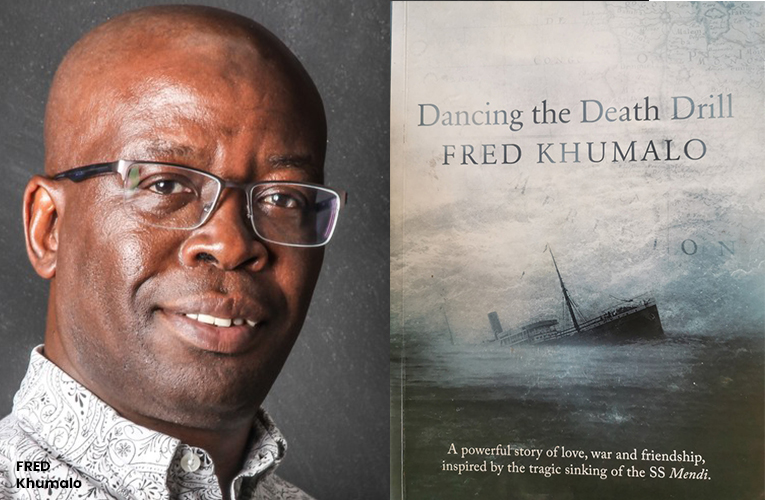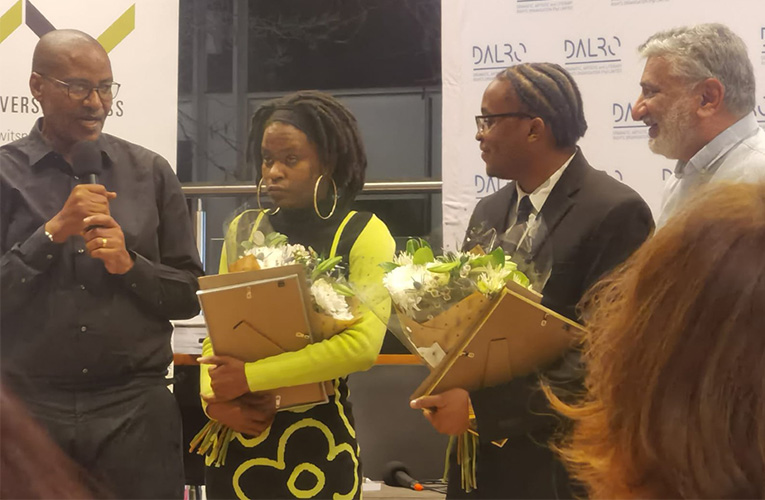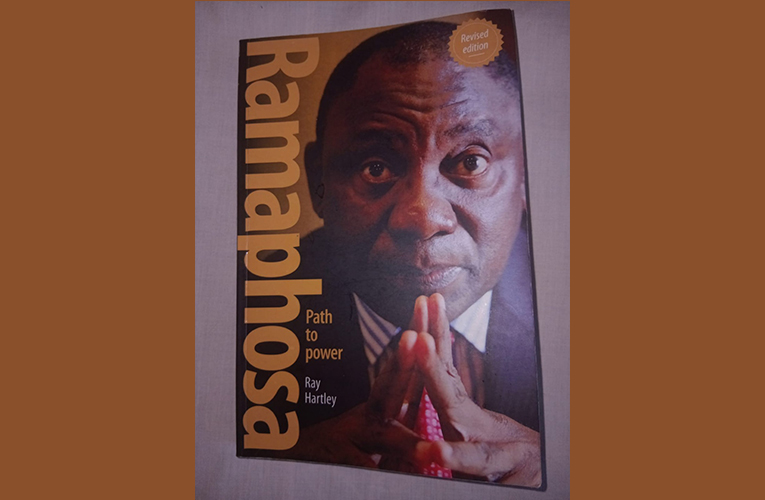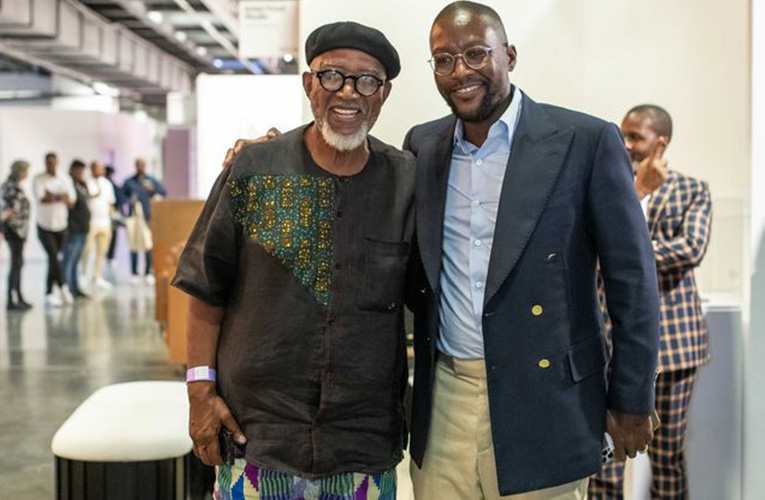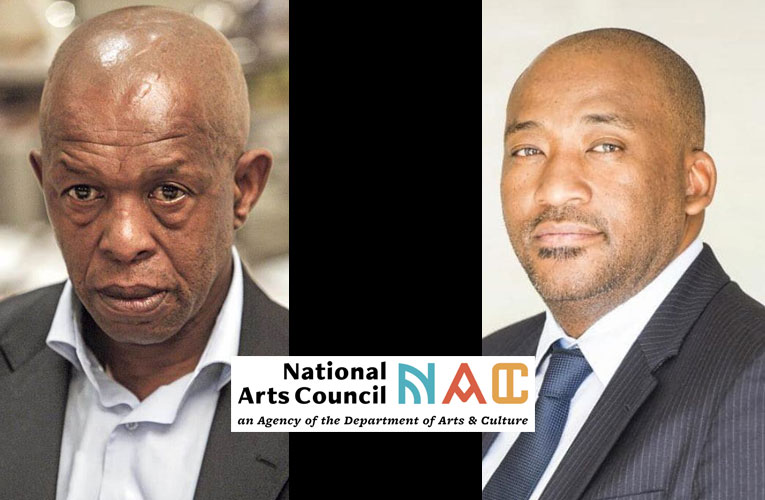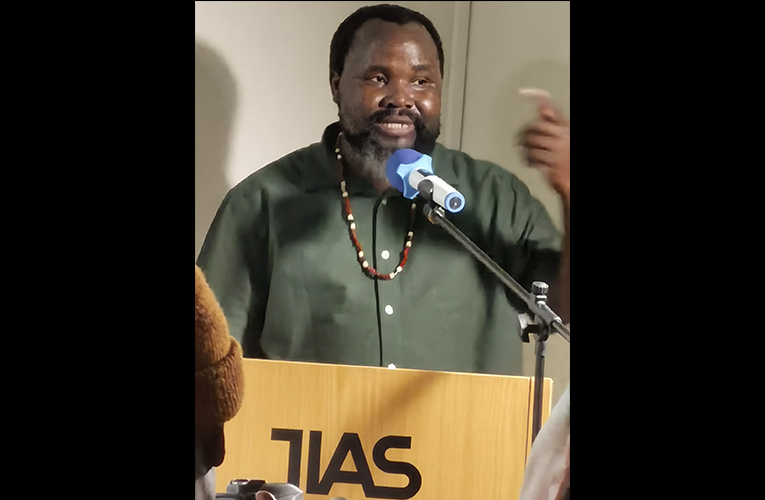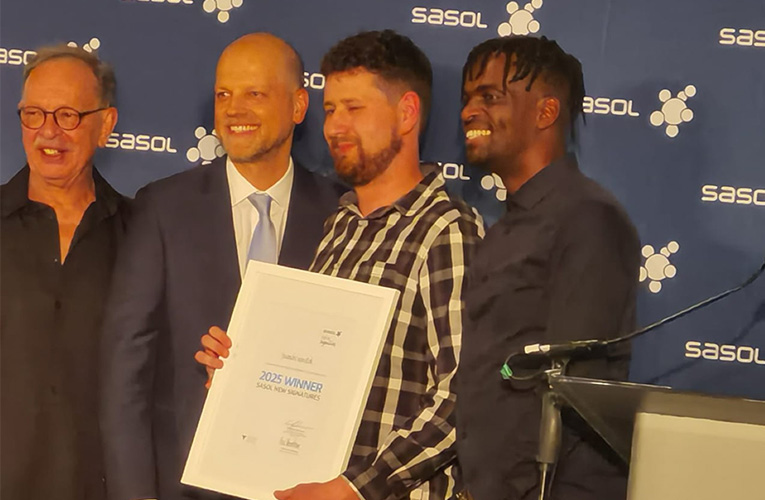Inspired by Ray Hartley’s book on Cyril Ramaphosa Path to Power, a writer claims that the ANC is here to stay
By Giyani Baloi
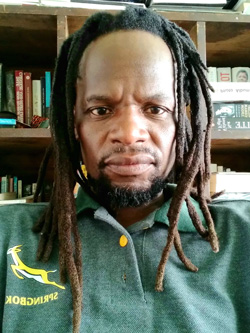
When I saw the book at a bookshop, I picked it up, read a few lines, held it in my hands, and thought, “Can I buy it or not?” The edge to buy won the day, and I bought the book.
One of the reasons for my hesitancy to buy the book was because I had read Cyril Ramaphosa’s biography written by Anthony Butler. I enjoyed Ramaphosa’s biography, although it felt like a hagiography. If you are a person of average intelligence and a fair reader like me, you can tell the difference between a good book and a bad one. You will also know that all mortal beings are not perfect.
The book I enjoyed the most is Thabo Mbeki’s biography, The Dream Differed written by Mark Gevisser. I think Gevisser just put it the way he saw it and left everything to the reader to decide.
After reading Path to Power, written by Ray Hartley, again I was a bit hesitant on reviewing it.This time around, the hesitancy was caused by the fact that politics is a muddy and dirty game.
Politics is a career or a profession that does not require any formal education or a specific qualification for one to enter into it. You may be a man or woman with or without any formal education, you can still enter into politics. You can be a lawyer, a professor, an engineer, a medical doctor, or a pastor,you can still be a politician.
Ray Hartley took a lot from Ramaphosa’s biography written by Anthony Butler to write his on book, Path to Power, and he also acknowledges it. He traced Cyril Ramaphosa’s path from the early 1980s when he started the National Union of Mineworkers (NUM). How Ramaphosa’s face was always alongside that of Nelson Mandela soon after Mandela’s release from prison in 1990. Cyril Ramaphosa was one of those who played a big role in the negotiation for democracy and the drafting of the South African Constitution.
But, the battle of the soul of the African National Congress (ANC) was yet to come from what I will call the ANC troika. Which is those who were in exiles in countries like Zambia, Zimbabwe, Nigeria, UK, etc.The inxiles, which are those who were fighting the battle from within the country, like the unions, civil organizations, churches, etc. The Islanders, which are those who were in prison in Robben Island, like Nelson Mandela, Govan Mbeki, Raymond Mhlaba, and others.
So, the coming together of those forces first to form a one ANC, for one common cause of building a democratic South Africa when themselves were also having their on slight differences, ideologically was itself a problem.
Although Ramaphosa was Nelson Mandela’s preferred candidate to succeed him as the ANC President and ultimately of South Africa, the trust issues within the ANC among other things, had to push Cyril Ramaphosa out of politics to business.
The business arena itself had a political element of transformation, black empowerment, etc. So, since Ramaphosa was one of the key figures of South African politics, it did not take him very long to make it in business, also using his political connection.
However, he later came back to politics in 2014 after spending more than 10 years in business. His first major move was chairing appeal disciplinary hearing that dismissed Julius Malema, who was the then ANC Youth League President. From there, he became President Jacob Zuma’s Deputy both in the ANC and the country in 2014.
With the erratic Zuma’s Presidency, Ramaphosa became the hope for many ANC members and supporters. But the battle was not an easy one. He narrowly defeated Nkosazana Dlamini-Zuma at the ANC elective conference in Nasrec in December 2017 to become the ANC president and then of South Africa in 2018.
But, did he steer the ANC revolutionary ship to the Promised Land after taking power from Jacob Zuma? The views may be different. Some would say yes, but it’s only that the damage that was done by President Jacob Zuma on both the ANC and South Africa was too much to repair in a short time, I think.
President Jacob Zuma was still to inflict more damage to the ANC by backing the newly formed MK Party in the 2024 national elections. Something that split the ANC votes and caused it to fall short of the required threshold to form government. And that forced the ANC to enter into a coalition political arrangement with other political parties that included the Democratic Alliance (DA) to form government.
I do listen or watch political discussions as an ordinary member of society and see very educated professors, political analysists throwing big political jargon in news, on TVon podcasts, etc. Some would be predicting the demise of the ANC in a few years’ time. They could be citing corruption, incompetency, and lack of service delivery as some of the reasons. It would look very sophisticated and complicated. But the more it looks sophisticated and complicated, the more it looks very simple to the ordinary me.
As for me, the ANC only lost controlling power in the 2024 national elections because of President Jacob Zuma, who backed the MK Party and split the ANC votes in half. If you want to know the actual percentage of the ANC election outcome of 2024, just add the MK Party percentage onto the ANC, and you will know where the ANC stands.
But will the MK Party hold on to the disgruntled ANC members who followed President Jacob Zuma? History tells us that disgruntlement never lasts. We saw it with General Bantu Holomisa with his UDM, Mbhazima Shilowa, and Musiuoa Lokota with their COPE.
So, is there an alternative to the erratic ANC? The legacy of apartheid and the racial separation for over centuries makes it impossible for the Democratic Alliance to become an alternative to the ANC and that I believe quite strongly.
The DA may rule certain municipalities and the Western Cape, but it won’t go further than that.
Why would the DA not grow further than that and become an alternative to the erratic ANC? The DA’s constituencies are the descendants of white supremacy. They were taught for many years that black people are inferior to white people, and the relationship between white and black people is that of master and servant. And if you give any black person a chance, you are only doing him or her a favour. That is why the DA’s experiment with Lindiwe Mazibuko and Mmusi Maimane did not work.
What about Julius Malema and his Economic Freedom Fighters (EFF)? The EFF is a vengeful and populist party. It is only looking for people’s frustration to exploit. It’s a party of rabble-rousers and law breakers. It encourages its members to occupy the land unlawfully. Another catch for Julius Malema”s party is that his constituencies are, majority products of dysfunctional township schools and education. So, you can’t preach pan Africanism and tell them that they must share their space or whatever small things that they have with their fellow African brothers, when they themselves are living in a sea of poverty. They won’t understand that. So, Julius Malema is actually shooting himself on the foot, and the only sure way for his party will be to die a slow natural death. That is how I see it anyway.
What about these other parties, like Rise Mzantsi, BOSA, etc? Those parties are a product of a black middle class. The alma maters of former model C schools whose parents are the beneficiaries of the BEE political business model that enriched a few politically connected black people, and also a few others who grinded it on their on to succeed after democracy.So, their political parties won’t grow, because they don’t speak the same language as their fellow black masses in the villages, townships and overcrowded informal settlements who share their space with rodents.
These are people who spend their normal day loitering around and hustling, picking whatever they can of value and go to sell it at a scrap yard to get small money to buy alcohol and drown their sorrows.
So, what does that mean for South Africa and the ANC?
Zuma’s MK party of the disgruntled ANC members will fade away very soon, which means the ANC will start swelling up again. Not because the ANC is a good political party, but because there is no alternative.
Otherwise, unless there can be a political party that can emanate from the union or any other ANC alliance partners that has a leadership that may appeal across the board, the ANC will claw back. But as things lookwe cannot talk of an alternative to the ANC in South Africa. So, as of now, the ANC is here to stay.
.Giyani Baloi is a businessman and freelance writer. He writes in his personal capacity.



